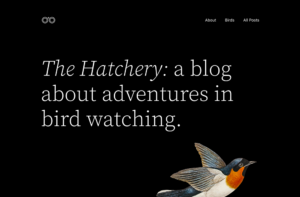Jean Galea is one of the most inspirational web professionals today. He runs WP Mayor (a blog focused on helping people learn more about WordPress) and WP RSS Aggregator (a WordPress plugin for importing RSS content). A man, who truly believes in breaking the conventions, does something he loves and is passionate about.
Let’s dive into this interview about Jean’s work, lifestyle and upcoming projects.
A million thanks for agreeing to this interview, Jean. Can we have a bit of background information – how did you get into WordPress industry? What is WordPress for you these days?
You’re most welcome Nataliya. I started out as a freelance website developer and for this reason I soon needed a CMS to implement on my clients’ websites. This was back in 2006 and the market share for Open Source CMSs was still split a number of ways with Mambo/Joomla, WordPress, Drupal and MODX all vying for the top spot as CMS of choice.
I started out with Joomla (then called Mambo) but soon realised that it was overly complicated for the clients to use. Shortly afterwards I discovered WordPress and have never looked back since.
While I’m heavily involved in WordPress on a professional level, I also highly appreciate the fact that the WordPress community is made up of so many friendly and genuinely helpful people. I’ve made many long lasting friendships through my involvement with WordPress.
What is the driving force that motivates you to take an active part in various WordPress-related events (like WordCamp)?
WordCamps are very important for myself and the rest of the WP Mayor (and WP RSS Aggregator) team. I get the chance to meet many of the users of our plugins, blog readers, and other established authorities that I can learn from myself.
I love the humility with which most attendees approach this event. Everyone seems willing to learn from each other and of course share their experiences. It’s truly an open source environment that embodies what the WordPress project really stands for.
What gave you the idea to create WP Mayor? When you have actually been creating it, did you have the idea that it will grow to a web project of this size?
The freelance WordPress developer gig I mentioned earlier soon grew into a fully fledged agency focusing on evangelising about WordPress in Malta, my home country. At a time when most other agencies believed in developing their own custom CMS solutions, we spoke to clients and educated them about the benefits of Open Source.
WP Mayor started off as a way of sharing my WordPress knowledge with my team, our clients and the world in general. I had no idea how big it would grow, and I am very grateful for the community’s support in helping WP Mayor really become a leading global WordPress resource.
WordPress has the best community that expands with each passing day. Where do you see this huge community in the next five years?
I think the WordPress community will only get larger and larger in the next five years as adoption rates increase. Apart from the growing adoption rate, I expect to see more conferences dedicated to WordPress as well as a growing maturity in ancillary products like themes and plugins. I believe we haven’t reached the peak yet, and while no one should rest on their laurels, the future looks very bright.
What are the challenges in using WordPress? Do you find any features that are necessary to be added, and any to be done away with?
WordPress has a very good reputation for having a short learning curve, but there are always things that can be improved. The standard dashboard is not always the ideal interface for administering content on a website or app. That is why I am very excited about the REST API and the possibilities it opens up for developers. Going forward WordPress will become way more flexible than it currently is.
How WordPress has changed your life over time? Imagine – WordPress doesn’t exist any more. What CMS would you stick with? Why?
It’s hard to imagine a world without WordPress as it’s the only CMS that really fits my needs and ideologies. For WordPress to be wiped out it would probably take an entire technological shift whereby CMSs themselves would be taken out of the equation.
Think about the way that e-mail largely displaced snail mail as a means of communication as internet access availability proliferated around the world. I believe that such a monumental shift would have to happen for WordPress to stop being relevant.
Providing migration service, we witness that there’s a growing trend to leave other CMS platforms in favor of WordPress. Have you ever faced the problem of website migration?
We have several clients who have used our RSS Aggregator plugin to export RSS from their old CMS and import it into WordPress, thus making the migration process very straightforward. This is a method that works really well especially for blogs.
For more complex migrations of course some manual intervention is needed, I wouldn’t recommend the typical user to perform a complex migration themselves.
What do you think about the automated method of website migration? Do you have any experience with online converters?
I haven’t used automated methods for site migration, so I can’t comment on their efficacy.
In your opinion, what’s the next level of WordPress development? Where do you see WordPress in 2-3 years time?
The next big thing for WordPress is the REST API which I think will change the way we think about building projects with WordPress. The concept of themes will change for sure but the REST API will also make WordPress a much more flexible platform that can power an even wider range of applications.
To conclude, share one interesting non-WordPress-related fact about yourself.
I love to travel and I’m quite a foodie. These two interests go hand in hand for me, so whenever I travel I make sure to try all the local cuisines and specialities. For the last four years I’ve been combining travel and work. I’ve lived in Malta, Spain, Mexico and Thailand and from each country I’ve gotten a ton of life lessons, so I highly recommend that people travel for extended periods of time where they can really absorb the local culture.
A big thanks to Jean for taking the time to share his awesome thoughts with us. If you’ve got inspired with this post, keep your eyes on our ongoing Experts Interview Series to catch the discussions with many other motivational people in the web industry.
P.S. Left with a strong desire to switch to WordPress? Consider aisite automated migration service to perform the conversion as easy and convenient as possible. Find more detailed information here and try your Demo Migration with no delay.










